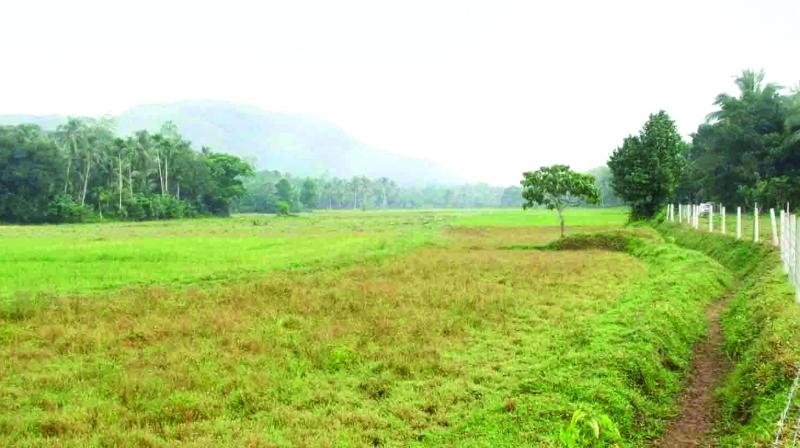Telangana government finding ways to rob displaced of sops

Hyderabad: The landless poor, who are entirely dependent on agricultural activity, have been deprived of resettlement and rehabilitation benefits when land is acquired for various projects.
The TS and AP governments have started building irrigation and infrastructure projects which require acquisition of huge chunks of land. While landowners are compensated, those working on the land stand in danger of losing their income and livelihood.
Lawyers fighting on their behalf accuse the authorities in both states of not providing relief even though this is mandated under the law for even landless labourers. Governments are taking advantage of the lack of awareness among the affected families about their rights under the law.
The Land Acquisition Act mandates resettlement and rehabilitation not only of the landowners who have to part with their land, it also mandates relief for the landless poor who are dependent on agriculture.
Right to Fair Compensation and Transparency in Land Acquisition, Rehabilitation and Resettlement Act 2013 defines the affected family as a family whose land or other immovable property has been acquired; a family which does not own any land but a member or members of such family may be agricultural labourers, tenants including any form of tenancy or holding of usufruct right, share croppers or artisans or who may be working in the affected area for three years prior to the acquisition of the land, whose primary source of livelihood stands affected by the acquisition of the land.
The Act envisages that a family that has been assigned land by the state or central government under any of their schemes, and such land is under acquisition, must also be treated as an affected family.
Mr Ch Ravi Kumar, an advocate who has been fighting for the affected families in the High Court, said that the Land Acquisition Act 1894 included relief only of landowners who have parted with their land for a public purpose, but the Act of 2013 has given wider protection to affected families and also prohibits the government from taking possession of the acquired land until the affected families are properly compensated. Lawyer B. Rachna Reddy said that in May 2017, the TS government notified The Right to Fair Compensation and Transparency in Land Acquisition, Rehabilitation and Resettlement (Telangana Amendment) Act which specified that the affected families have to be rehabilitated by providing jobs and also one time benefits and monthly pensions.
She said that though several safeguards were announced in the state Act, the officials are searching for ways to avoid paying the compensation and drive away the affected families.
She said she has filed cases on behalf of more than 600 affected landless people.
Mahbubnagar District Palamoori Migrant Labour Union, which has been fighting for the cause of migrant labourers, has alleged that the though the Land Acquisition Act mandates that the state government constitute special committees to identify the affected families, so far such committees have not been constituted.
Mr Shashi Kiran, counsel for the union, says the government has acquired thousands of acres of agriculture land for the Palamuru-Ranga Reddy and Kaleswaram lift irrigation projects, but has not kept its commitment under the rehabilitation and resettlement act for agricultural labourers, tenants and artisans.
In both states nearly one lakh acres have been acquired for projects, says Mr Ravi Kumar. “If we take just one dependent family of landless poor per acre there would be one lakh families in both states that will have been affected by the land acquisition, but AP and Telangana governments claim that in most of the cases there were no affected families!” he said.
He said that in Oravakallu in Kurnool district the government has taken up a solar project and initiated land acquisition.
“When we moved the High Court for not enumerating the affected families, it was claimed that only 130 people were affected by the project when more than 1,000 people were affected,” he said.

